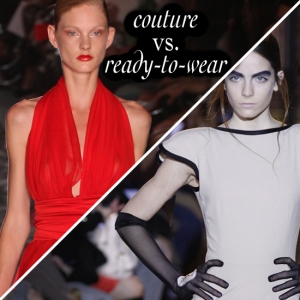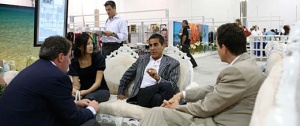
Couture vs Ready-to-Wear
I’ve been wondering the difference between these two distinctive types of clothing, Couture and Prêt-à-porter (ready-to-wear). I finally came across meaningful definitions from Diana Pemberton-Sikes, EzineArticles expert.
“COUTOUR (koo TOOR) is the French word for “sewing.” Couture clothes are those that are fitted and sewn specifically for a client, often requiring several fittings for an exacting fit. The clothes may be specifically designed for the client, such as a one-of-a-kind wedding dress or a one-of-a-kind red carpet ensemble, or they may be part of a designer’s couture collection, which are the pieces the designer shows that are available for custom fit.”
“READY-TO-WEAR, or prêt-à-porter (prêt a poor TAY) is designer apparel that’s made ready-to-wear in standard sizes and sold through boutiques, better department stores, mail order, and online. While consumers can have pieces tailored to fit after purchase, customization is not included in the cost of ready-to-wear apparel. Many brand-name designers, like Vera Wang and Carolina Herrera, only show ready-to-wear collections, but still create a handful of couture pieces upon request for influential clients.”
When designers are presenting their Ready-to-Wear collections, know that those clothes are being showcased for department stores while their Couture collections are specifically for those who get fitted for their clothing or who order from the designer’s “look book.”
Knowing the difference between these two major categories of fashion really gives me a better understanding of the designers intent for their fashion along with the departments need for their collections.


